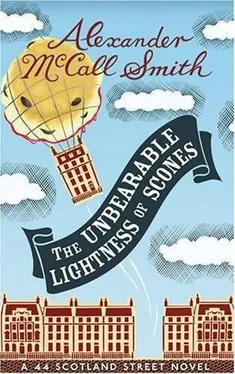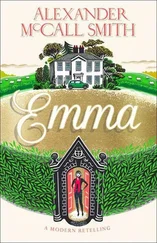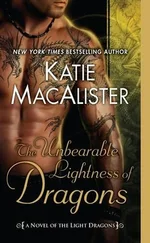Alexander Smith - Unbearable Lightness of Scones
Здесь есть возможность читать онлайн «Alexander Smith - Unbearable Lightness of Scones» весь текст электронной книги совершенно бесплатно (целиком полную версию без сокращений). В некоторых случаях можно слушать аудио, скачать через торрент в формате fb2 и присутствует краткое содержание. Жанр: Триллер, на английском языке. Описание произведения, (предисловие) а так же отзывы посетителей доступны на портале библиотеки ЛибКат.
- Название:Unbearable Lightness of Scones
- Автор:
- Жанр:
- Год:неизвестен
- ISBN:нет данных
- Рейтинг книги:4 / 5. Голосов: 1
-
Избранное:Добавить в избранное
- Отзывы:
-
Ваша оценка:
- 80
- 1
- 2
- 3
- 4
- 5
Unbearable Lightness of Scones: краткое содержание, описание и аннотация
Предлагаем к чтению аннотацию, описание, краткое содержание или предисловие (зависит от того, что написал сам автор книги «Unbearable Lightness of Scones»). Если вы не нашли необходимую информацию о книге — напишите в комментариях, мы постараемся отыскать её.
Unbearable Lightness of Scones — читать онлайн бесплатно полную книгу (весь текст) целиком
Ниже представлен текст книги, разбитый по страницам. Система сохранения места последней прочитанной страницы, позволяет с удобством читать онлайн бесплатно книгу «Unbearable Lightness of Scones», без необходимости каждый раз заново искать на чём Вы остановились. Поставьте закладку, и сможете в любой момент перейти на страницу, на которой закончили чтение.
Интервал:
Закладка:
They withdrew from the studio. Angus covered the Raeburn with an old blanket, a threadbare square of hodden grey, and called Cyril to heel. Then, with the studio door closed behind them, they made their way into the kitchen.
Domenica resisted the temptation to open a window. It is not generally considered polite, she reminded herself, to go into the house of another and open a window, there being an element of judgment in such an action. Nor, she thought, should one rearrange any of the items in a room, nor even turn on a light. She did not think that Angus would notice any of these things, but she had been strangely moved by what she had witnessed in the studio, and she did not want to compromise the almost mystical moment of insight that had been vouchsafed her.
And what precisely was that? It was difficult to be too specific – the whole point about a moment of insight is that it defies quotidian description – but she had suddenly appreciated the sheer otherness of Angus. Most of us go through life so absorbed in the cocoon of ourselves that we rarely stop to consider the other. Of course we think that we do; indeed we may pride ourselves on our capacity for empathy; we may be considerate and thoughtful in our dealings with others, but how often do we stand before them, so to speak, and experience what it is to be them? She asked herself this, and remembered, vaguely, something she had read somewhere, about the I-Thou encounter. Martin Buber? That sounded right, but now, in the kitchen of Angus Lordie’s flat, the recollection was vague, and the moment, already, was passing.
She looked at Angus, at his paint-bespattered corduroy trousers; at his somewhat battered Harris tweed jacket; at the Paisley handkerchief-cum-cravat that he had tied round his throat; at his shoes, old brown brogues which he obviously tended with care, for they were polished to a high shine. How often have I looked at him in this way? she asked herself. How often have I noticed or, indeed, listened to him? We talk, but do I actually listen, or is our conversation mainly a question of my waiting for him to stop and for it to be my turn to say something? For how many of us is that what conversation means – the setting up of our lines?
She looked at him as he moved over to the sink and filled his ancient kettle with water. She looked at the sink itself, at the tottering pile of pots that surely could not be added to any further without collapse. She looked beyond the sink at the window behind it, in need of a clean on both sides. She looked at the notice-board he had created for himself from a large square of dark cork; at the photographs tacked onto it; the notes to self; the bills paid and unpaid. This was Angus. This was another. This was another life.
While he busied himself with the kettle and the ladling into a jug of several spoonfuls of coffee, Domenica moved over to the notice-board and bent down to examine the photographs. She had never seen them before. The notice-board was nothing new to the room, but she had never seen it before, and she felt ashamed, because Angus was her friend, one of her closest friends, and she had never even bothered to look at his notice-board.
“Do you mind?” she asked. “Do you mind if I take a look at these photographs?”
He half-turned from his position at the sink. “No,” he said. “I don’t mind. Of course you can look at them. I’ll tell you what they are, if you like.”
Domenica peered at the photographs. There were about a dozen of them, and they seemed to be of varying ages. Some, the older ones, had an almost sepia look to them, as if they had been taken from an old family album. Others were more vivid, the colours still there, even if fading slightly.
“I assume that’s you,” she said. “That’s you as a boy.”
Angus, who was fetching cups from a cupboard, glanced over his shoulder. “Yes. That’s me. And a friend of mine. He came from Mull. His dad was a doctor over there. The doctor drove a Lagonda. I remember it. Beautiful car. We were at school together. He was called Johnnie.”
Domenica looked more closely. Two boys, age twelve or so, stood in front of a dry-stane dyke, both wearing kilts and jerseys. She noticed that the shadows on the ground were long; it was afternoon. Behind the dyke she could make out a field, a hillside, rising sharply to a high, empty sky. She closed her eyes, very briefly, and for some reason the words came into her mind, unexpected, unbidden, but from the region of the heart, from that very region: I love this country.
She became aware of Angus behind her. She heard his breathing.
“We had just started at Glenalmond,” he said. “Our first year there, I think. It was quite tough in those days – and they turned us out to roam the hills on a Sunday. In the summer term, at least. Johnnie and I used to go all over the Sma’ Glen. There was a farm called Connachan down towards Monzie where we used to go for tea when we were meant to be up at the top of the hill. The farmer had a couple of daughters our age and they’d tease us. We got on famously.
“And at the back of the farm,” Angus continued, “there was the River Almond. You probably know it. Well, further up, along the road to Auchnafree, the farmer had a wire cable across the river with a basket suspended from it. You could pull yourself across in the basket. He and his shepherds used to use this to get across the river without getting their feet wet. The sheep-dogs too. Dogs like Cyril. The dogs loved it. Dogs love anything like that.
“We used to swim in the river too. It was always freezing, even in summer. And then we’d eat sandwiches on the rocks. Bully beef sandwiches. Remember bully beef? Do you think anybody eats it now?”
He paused. “There are some lines,” he said quietly, “that come to me when I look at that photograph. We twa ha paidled in the burn/From morning sun til dine…”
“But seas between us braid hae roar’d…” Domenica supplied.
“Exactly,” said Angus. “Johnnie…”
He stopped. She waited for him to say something more, but he did not.
65. From Hero to Zero in One Simple Word
“Bingo!” thought Bruce. He was sitting in the small restaurant over the road from Nick McNair’s flat in Leith, into which he had just moved. Then he thought: Julia Donald! That dim, dumb… zero. Yes, that’s what she was. She was a zero, a minus quantity even. And to think that she had me believing that her baby – her stupid zero baby – was mine, when all the time she was seeing Watson Cooke, the Watsonian zero in that Clarence Street dump of his. Number Zero, Clarence Street, EHZero ZeroYS! What a narrow escape. And they deserved each other, just as they would deserve all those zero nappies for that dim baby of theirs. No thank you! Not pour moi !
Now, at the table in the restaurant, with seven of Nick’s friends, Bruce felt much happier. There was a bit of an unresolved issue over the fact that the advertising agency for which Nick was working was owned by Julia Donald’s father, but Bruce was beginning to think of a way out and he would deal with that later. There would be plenty of time. For the moment he would have to work out how to respond to the woman on the other side of the table who was looking at him. More than that; she was giving him the look. And that was when he said to himself, “Bingo!”
There was a slight problem, of course, and that was that Bruce had not caught her name when they had been introduced. Shelley? Sheila? It was something like that. Well, that was not a problem, really. If you don’t know somebody’s name, thought Bruce, then ask them. It was an excellent chat-up line, in fact. What’s your name? is seriously romantic, he thought. It works every time.
He leaned across the table. “What’s your name?” he asked.
Читать дальшеИнтервал:
Закладка:
Похожие книги на «Unbearable Lightness of Scones»
Представляем Вашему вниманию похожие книги на «Unbearable Lightness of Scones» списком для выбора. Мы отобрали схожую по названию и смыслу литературу в надежде предоставить читателям больше вариантов отыскать новые, интересные, ещё непрочитанные произведения.
Обсуждение, отзывы о книге «Unbearable Lightness of Scones» и просто собственные мнения читателей. Оставьте ваши комментарии, напишите, что Вы думаете о произведении, его смысле или главных героях. Укажите что конкретно понравилось, а что нет, и почему Вы так считаете.












